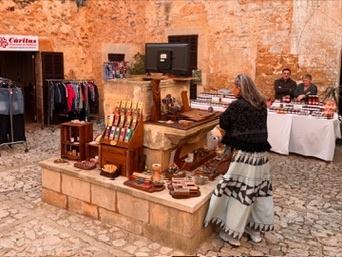What role does the Mallorcan bee play in local agriculture and crop production in Mallorca?
Similar Topics
mallorcan bee
local agriculture
crop production
mediterranean climate
pollination efficiency
biodiversity support
native plants
sustainable farming
The Mallorcan bee, a subspecies native to the island of Mallorca, plays a crucial role in the island’s agricultural landscape and crop production. These bees are particularly well-adapted to the Mediterranean climate, thriving amidst the island’s mix of wild flora and cultivated crops. Their efficiency as pollinators enhances the productivity of a variety of local crops, including almonds, citrus fruits, carob trees, and olives, all of which form the backbone of Mallorca’s agricultural economy. By facilitating pollination, the Mallorcan bee helps increase fruit set and quality, directly impacting crop yields and ensuring the sustainability of traditional farming practices on the island.
In addition to their pollination activities, Mallorcan bees contribute to the biodiversity and resilience of local ecosystems. Their activity supports the reproduction of native plants, maintaining balanced habitats that benefit other wildlife and sustain soil health. This biodiversity is essential as it underpins the natural processes that farmers rely on for pest control and soil fertility. The bee’s role extends beyond agriculture; it supports the entire agro-ecological network that keeps Mallorca’s rural areas productive and vibrant.
Local beekeeping, known as apiculture, also benefits from this native bee population, contributing honey and other hive products that are prized for their unique flavors, reflecting the island’s diverse flora. This not only supports the agricultural economy but also attracts eco-conscious visitors interested in sustainable and authentic experiences. Overall, the Mallorcan bee is indispensable to the island’s agricultural productivity and environmental health, symbolizing a harmonious relationship between nature and traditional farming systems crucial to Mallorca’s identity.
In addition to their pollination activities, Mallorcan bees contribute to the biodiversity and resilience of local ecosystems. Their activity supports the reproduction of native plants, maintaining balanced habitats that benefit other wildlife and sustain soil health. This biodiversity is essential as it underpins the natural processes that farmers rely on for pest control and soil fertility. The bee’s role extends beyond agriculture; it supports the entire agro-ecological network that keeps Mallorca’s rural areas productive and vibrant.
Local beekeeping, known as apiculture, also benefits from this native bee population, contributing honey and other hive products that are prized for their unique flavors, reflecting the island’s diverse flora. This not only supports the agricultural economy but also attracts eco-conscious visitors interested in sustainable and authentic experiences. Overall, the Mallorcan bee is indispensable to the island’s agricultural productivity and environmental health, symbolizing a harmonious relationship between nature and traditional farming systems crucial to Mallorca’s identity.
🧩 Related Questions
Related Question
In what ways does Mallorca's climate shape the timing and length of the olive harvest compared to mainland Spain?
Related Question
Can you explain the significance of almonds in Mallorcan culture and traditions?
Related Question
Can you describe the cultural events traditionally held on La Rambla in Palma?
